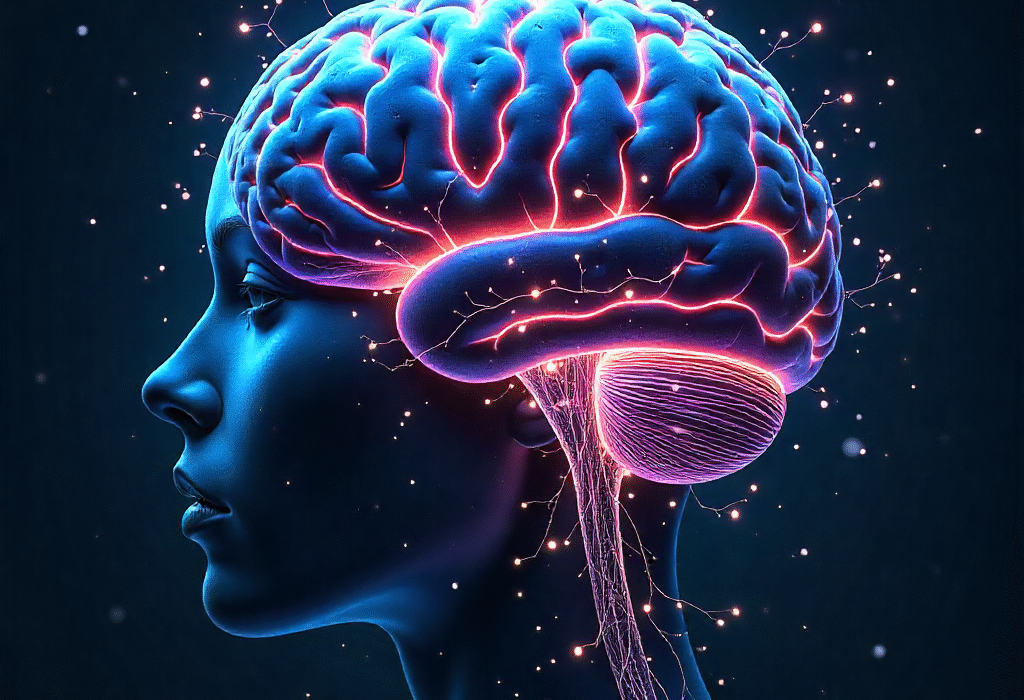For as long as humanity has existed, we have lived under the shadow of disease. From ancient plagues that swept across empires to the microscopic viruses and bacteria that still challenge modern medicine, illness has been an unavoidable companion of life. What if that were no longer true? What if humans could be edited at the genetic level so that our very biology became impervious to every possible disease? It sounds like the promise of science fiction, a dream of immortality whispered in futuristic novels. Yet, in the twenty-first century, this question is no longer fantasy—it is a real and pressing subject of scientific debate. Advances in genetic engineering, particularly the rise of CRISPR-Cas9 technology, have opened doors once thought locked forever. The possibility of rewriting our DNA to protect us from sickness forces us to confront profound questions about biology, morality, and the future of humanity itself.
The idea of perfect immunity is captivating because it promises an end to suffering. No more viral infections. No more cancer cells spreading unchecked. No more devastating hereditary conditions passed from one generation to the next. At first glance, the path seems clear: if genes make us vulnerable, then changing those genes should make us invincible. But biology is rarely so simple, and the pursuit of such a future reveals a landscape filled with both dazzling potential and sobering complexity.
The Genetic Blueprint of Disease
To understand how genetic editing might free humanity from disease, it is essential to recognize that illness is often written into our DNA. Every human being carries approximately 20,000 genes encoded within the three billion base pairs of our genome. Some of these genes are responsible for traits such as eye color or height. Others are crucial to the immune system, orchestrating defenses against invading pathogens. And hidden among them are genetic variations—mutations—that can predispose us to illness.
Genetic disorders like cystic fibrosis, Huntington’s disease, and sickle-cell anemia arise from specific mutations in single genes. In these cases, the link between the gene and the disease is direct and clear. If scientists can correct or replace the faulty gene, the disease could be cured or even prevented before birth. But the genetic roots of disease extend far beyond single-gene disorders. Many common conditions—heart disease, diabetes, Alzheimer’s, and most cancers—are influenced by hundreds or even thousands of genes interacting in intricate ways with environmental factors like diet, stress, and exposure to toxins.
Even infectious diseases, caused by viruses and bacteria, are not simply random invaders. The outcome of infection depends heavily on genetic factors. Some people are naturally resistant to HIV due to mutations in the CCR5 gene. Others are less susceptible to malaria because of genetic variations affecting red blood cells. These natural examples prove that immunity can be genetically encoded, suggesting that with enough understanding, scientists might design broad-spectrum resistance against a wide range of pathogens.
CRISPR and the Power to Rewrite Life
The modern revolution in genetic editing began in 2012, when researchers unveiled CRISPR-Cas9, a molecular tool adapted from bacterial defense systems. CRISPR acts like a pair of programmable scissors, capable of cutting DNA at precise locations so that genes can be added, removed, or altered. This technology has democratized genetic engineering, making it faster, cheaper, and more accurate than ever before.
With CRISPR, scientists have already cured certain genetic diseases in laboratory animals. In some cases, researchers have edited the genomes of human embryos to remove inherited mutations, though such experiments remain ethically controversial and heavily regulated. Beyond fixing genetic errors, CRISPR can be used to enhance the body’s defenses. Imagine altering immune cells so that they instantly recognize and destroy cancer. Imagine rewriting lung cells so they cannot be infected by coronaviruses. These possibilities are no longer abstract dreams; early-stage experiments are already hinting at their feasibility.
The transformative potential of CRISPR comes from its flexibility. Unlike earlier genetic tools, which targeted only specific genes with limited accuracy, CRISPR can be reprogrammed easily to recognize almost any sequence in the genome. This means it could, in theory, be used to engineer resistance against multiple diseases simultaneously. A single intervention might eliminate genetic predispositions to cancer, heart disease, and Alzheimer’s, while also strengthening the immune system against infections. The allure of such a sweeping transformation is what fuels the question: could genetic editing make humans immune to all diseases?
The Complexity of Immunity
To answer that question, we must explore what immunity really means. The human immune system is not a static defense wall but a dynamic, adaptable network of cells, proteins, and signaling molecules. It evolves during a person’s lifetime, learning to recognize and remember pathogens. Vaccines exploit this adaptability by training the immune system to respond quickly when exposed to viruses or bacteria. But immunity has limits. Pathogens mutate rapidly, developing new strategies to evade detection. Even the flu virus changes so frequently that new vaccines are required each year.
If scientists attempt to use genetic editing to hard-wire immunity, they face two immense challenges. First, the diversity of pathogens is staggering. Viruses, bacteria, fungi, and parasites employ countless methods of infection, and each would require unique genetic defenses. Second, the very adaptability of the immune system is part of its strength. Over-engineering immunity might make humans resistant to known diseases but vulnerable to new ones that evolve in the future. A perfect genetic shield against today’s threats could become obsolete tomorrow.
Moreover, immunity is a double-edged sword. An overactive immune system can turn against the body itself, causing autoimmune disorders like multiple sclerosis, lupus, or type 1 diabetes. Engineering stronger immunity without careful balance could unintentionally unleash new forms of disease. The genetic code is not a simple machine that can be reprogrammed without consequences; it is a delicate symphony, and even small changes can alter the harmony in unexpected ways.
Lessons from Nature
Nature offers fascinating examples of how genes shape resistance to disease. The mutation known as CCR5-Δ32, found in about one percent of Europeans, prevents the HIV virus from entering immune cells. Another genetic trait, the sickle-cell mutation, provides partial protection against malaria, though at the cost of causing sickle-cell anemia when inherited in two copies. In both cases, resistance arises from subtle changes in the genome that shift the balance between health and risk.
These examples reveal both the promise and the peril of genetic editing. If we could replicate the beneficial effects of CCR5-Δ32 without the drawbacks of sickle-cell mutations, we might engineer new forms of resistance. But they also remind us that evolution rarely grants gifts without a price. Genes that protect against one disease often create vulnerabilities elsewhere. Perfect immunity might be biologically impossible because every adaptation involves trade-offs.
Still, the lessons of nature are inspiring. They show that immunity can indeed be encoded in DNA, and that with sufficient knowledge, humans might learn to design defenses far more precise and powerful than those produced by chance evolution. The challenge lies not in whether it is possible but in how to do it safely and wisely.
The Ethical Labyrinth
Even if science could engineer universal disease resistance, should it? The ethical implications of rewriting the human genome are profound. At the heart of the debate is the distinction between treating disease and enhancing humanity. Editing the genes of a child to remove a deadly inherited disorder may seem compassionate and necessary. But editing those same genes to create “superhumans” immune to all disease enters a far more uncertain territory.
One concern is inequality. Advanced genetic editing would likely be expensive, at least in its early years. If only the wealthy could afford to make their children immune to disease, society would face a biological divide between the genetically protected and the vulnerable. Such a future could deepen social inequities, turning health itself into a privilege of wealth.
Another concern is consent. Editing the germline—altering the DNA of embryos—means making irreversible choices for future generations who cannot agree to them. These changes would not affect just one person but their descendants for centuries to come. Mistakes, unintended consequences, or unforeseen interactions with the environment could ripple through humanity in ways we cannot predict.
There is also the philosophical question of what it means to be human. Our vulnerabilities, including our susceptibility to disease, are part of our shared experience. To remove them might create beings who are biologically superior but perhaps less connected to the struggles that have defined humanity for millennia. Would such editing make us more human, or something altogether different?
The Science of Trade-offs
A critical obstacle to the dream of universal immunity lies in the biological principle of trade-offs. Evolution has shaped humans not for perfection but for survival. Every adaptation is a compromise. Genes that help resist one disease may increase the risk of another. For example, the same immune responses that fight infections can also cause inflammation, which contributes to aging and chronic illnesses.
If scientists attempted to engineer immunity to all known diseases, they might inadvertently create vulnerabilities to new, unknown ones. Worse, they might disrupt the intricate balance of the immune system, leading to widespread autoimmune problems. Perfection in biology often comes at the cost of resilience, and resilience is what allows humanity to adapt to an ever-changing environment.
The complexity of polygenic traits—those influenced by many genes—further complicates the matter. Conditions like diabetes, schizophrenia, or heart disease involve thousands of genetic variants interacting in ways we are only beginning to understand. Editing one gene may have cascading effects on dozens of others. The genome is not a simple code but a network of interdependent systems, and interventions must be approached with extraordinary caution.
Hope in Precision Medicine
Despite these challenges, the future is far from bleak. Advances in precision medicine, which tailors treatments to an individual’s unique genetic makeup, offer a glimpse of what is possible. Instead of attempting to create universal immunity, scientists may focus on personalized editing—adjusting genes to fit the specific risks of each person. By combining genetic information with lifestyle data, medicine could become preventive rather than reactive, stopping disease before it begins.
Cancer therapies already provide examples of this future. Scientists are experimenting with editing a patient’s own immune cells to recognize and destroy tumors. These “CAR-T cells” represent a fusion of genetic engineering and immunology, offering powerful new weapons against cancer. Similar strategies could one day be applied to viral infections, organ failure, and neurodegenerative diseases.
The dream of absolute immunity may remain elusive, but the reality of dramatically reducing human suffering through genetic editing is well within reach. Instead of making humanity invincible, science may make us far more resilient, extending lifespans, reducing chronic illness, and ensuring that diseases which once devastated populations become manageable or even obsolete.
The Future of Human Evolution
Genetic editing does more than promise new medical cures; it represents a turning point in evolution. For billions of years, life has been shaped by natural selection. Now, for the first time, a species has gained the power to direct its own genetic destiny. Whether or not we achieve immunity to all diseases, the choices we make about editing our DNA will shape the trajectory of humanity itself.
Some envision a future in which diseases vanish entirely, life spans extend for centuries, and humans evolve into post-biological beings. Others fear a world divided by genetic inequality, where the rich sculpt their descendants into superior beings while the poor are left vulnerable. Between these extremes lies a path of cautious progress, in which genetic editing is used responsibly to reduce suffering while preserving the diversity and adaptability that make humanity resilient.
The decisions of the coming decades will determine which of these futures becomes reality. Scientists, policymakers, and citizens alike must engage in open dialogue, balancing ambition with humility, innovation with ethics. The power of genetic editing is too great to be guided solely by technological possibility; it must be steered by wisdom, compassion, and foresight.
A World Without Disease?
So, could genetic editing make humans immune to all diseases? The honest answer is that it remains unlikely, at least in the foreseeable future. Biology is too complex, and disease too diverse, for a single solution to exist. Immunity is not a switch that can simply be turned on. It is a living, evolving process shaped by countless factors beyond our control.
Yet, the pursuit of this dream is far from futile. Even if perfect immunity is unattainable, genetic editing has the potential to transform health in ways once unimaginable. It could eliminate devastating inherited disorders, provide resistance to major infections, and reduce the burden of chronic illness. In doing so, it could extend not just the length but the quality of human life, granting future generations freedoms that past generations could scarcely imagine.
The dream of a world without disease may never be fully realized, but the journey toward it is already reshaping medicine, ethics, and our vision of humanity’s future. In the end, perhaps the true gift of genetic editing will not be perfection, but the chance to lessen suffering, to lift the weight of illness from billions of shoulders, and to remind us that the greatest power of science lies not in erasing our humanity, but in helping us live it more fully.
The Endless Question
Albert Einstein once remarked that the important thing is never to stop questioning. The question of whether genetic editing can make humans immune to all diseases may never have a definitive answer, but it is a question worth asking because it forces us to examine who we are, what we value, and what kind of future we wish to build.
Perfect immunity may remain a myth, but the pursuit of it is already driving discoveries that bring us closer to a healthier, longer, and more resilient existence. Perhaps the real miracle is not in making humans immortal, but in harnessing science to make our brief time on Earth freer from suffering and richer in possibility.






